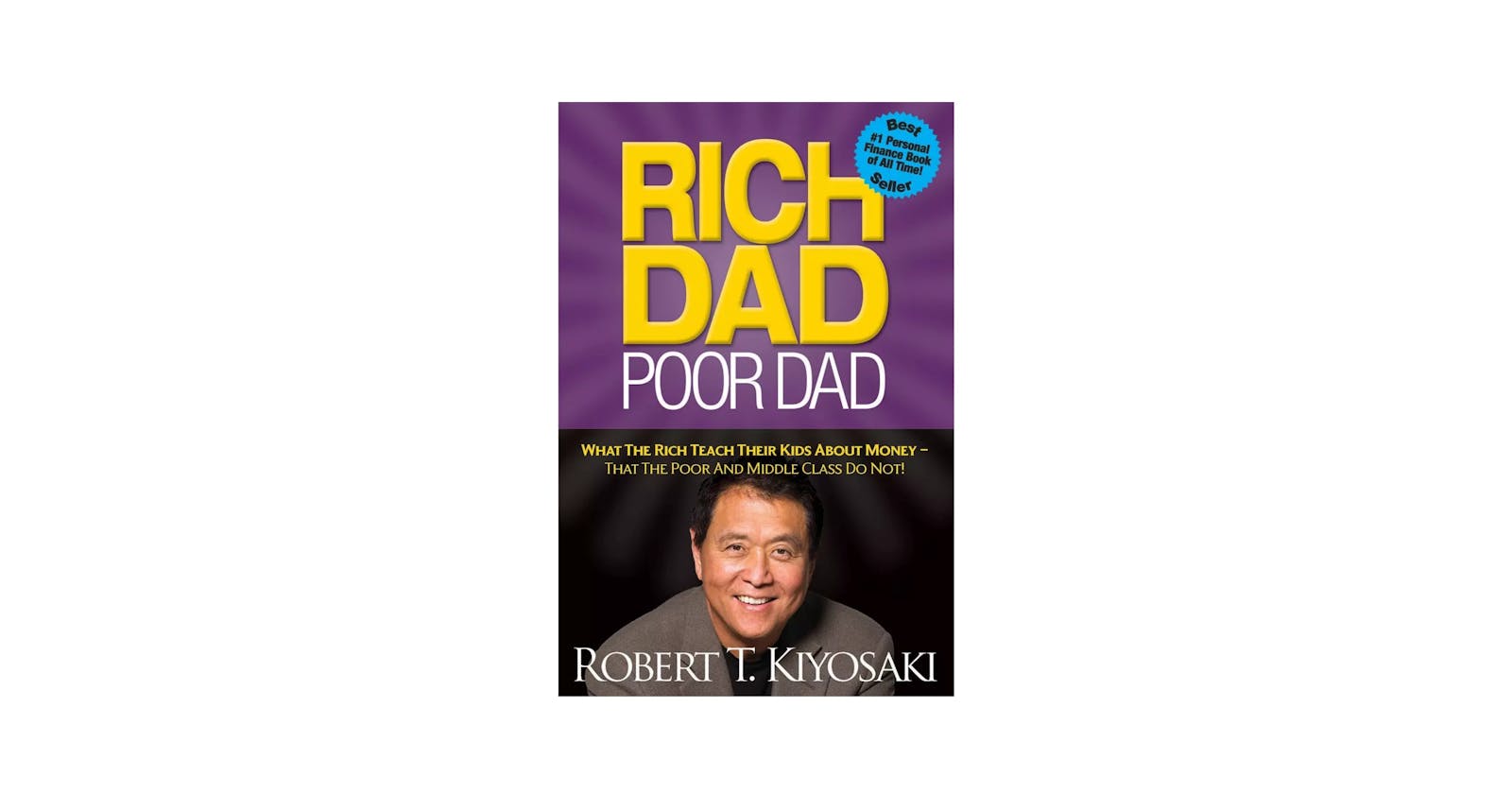Rich Dad Poor Dad is in my opinion the best book of all time in the personal finance category. It upholds the concepts of financial independence and financial literacy.
It was written by Robert Kiyosaki in 1997 and was published in 2000 after being spurned for 3 years by publishers. It has sold 40 million copies till date in more than 108 countries and it is available in more than 50 languages worldwide. It is uplifted as a nifty financial book by people like Will Smith, Donald Trump, Oprah Winfrey and Daymond John (an American Investor).
Rich Dad Poor Dad is a story of the author and the lessons he got from his two fathers, his rich dad and poor dad. Poor Dad, his biological father & a highly educated but poor man and his Rich Dad, the father of his friend, who never even finished school but owned multiple businesses. Both of his fathers taught him about finance/success but in contrasting approaches. Throughout the book author compares the lessons he got from his fathers.
What I understood from the book
Following is the teaching I got in points. I am not going to explain the context too much plainly, if a chapter is of 10% I would have listed only 1% of its part because the understanding you will get while following the story while reading it will be a thing to remember.
People get their wage at the month end and lose it to taxes, expenses, rents and loans and in the next month they follow same cycle, the Rat race. People follow the rat race( an endless, self-defeating, or pointless pursuit). They let fear and greed influence their decisions and follow the stereotypical way of becoming rich.
Robert says that, forget the notion that makes you feel that you have to work for money. You don't. Let go of your fear and greed and seize the opportunities. Have a reason to motivate yourself to work. People should not be waiting for some magic to happen, you have to catch the opportunity and make the thing happen. He says that, a person must hire people more intelligent than himself because when you do this you combine their knowledge with your intelligence. A lesson in the book instigates real estate investing. If we have to become self-sufficient, financially we should focus on growing our business.
Financial literacy comes in the game when someone wants to calculate their earnings and expenses. Author says "Money without financial intelligence is money soon gone." We need to understand the difference between assets and liabilities. Rich people build assets that makes them richer but poor people ignore the assets over liabilities and remain the way they are. An asset makes us rich while liability does the opposite. To become rich ones assets counting must be more than his liabilities. There is a chapter in the book where it is talked about the skills you need for financial success i.e. communication and marketing skills.
The obstacles a person faces in his way to success is his fear and laziness. Overcome these and you're halfway to your goal.
One thing that caught my attention is that both of Roberts' dad wanted him to get educated because when you invest in the learning process it pays you back a hundred folds.
Major lessons from the book
- The Rich Don’t Work for Money
- Why Teach Financial Literacy?
- Mind Your Own Business
- The History of Taxes and The Power of Corporations
- The Rich Invent Money
- Work to Learn—Don’t Work for Money
My favourite quotes from book
To know a little about a lot.
There is a difference between being poor and being broke. Broke is temporary. Poor is eternal.
Winners are not afraid of losing. But losers are. Failure is part of the process of success.
People who avoid failure also avoid success.
The single most powerful asset we all have is our mind. If it is trained well, it can create enormous wealth in what seems to be an instant.
Excessive fear and self-doubt that were the greatest detractors of personal genius.
Summarizing Rich Dad Poor Dad is the most laborious thing I faced while outlining the books, all physical jobs excluding. Because even if this book is short it is not easy to put each chapter in a nutshell that too without spoiling it completely. I think every person who is self earning should read this book once as it tells you what you are doing wrong with your money and teaches you how to transmute it towards the route where it will multiply itself for you.
